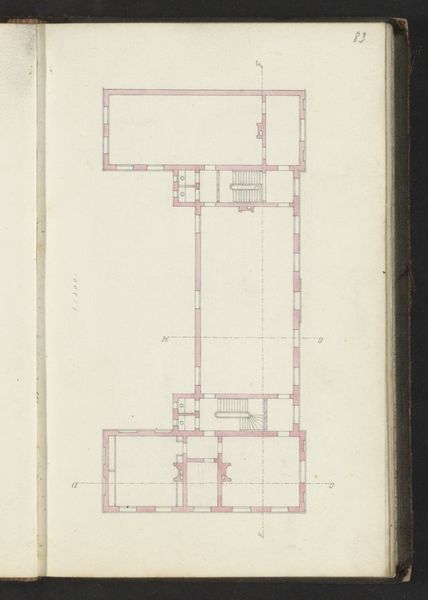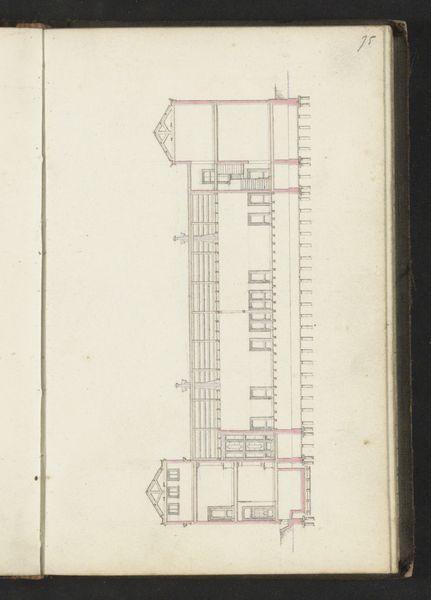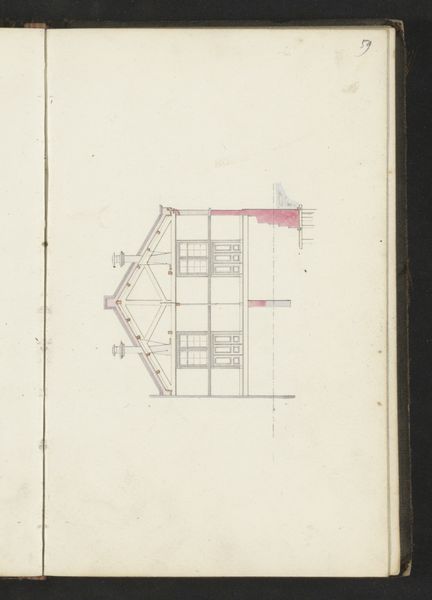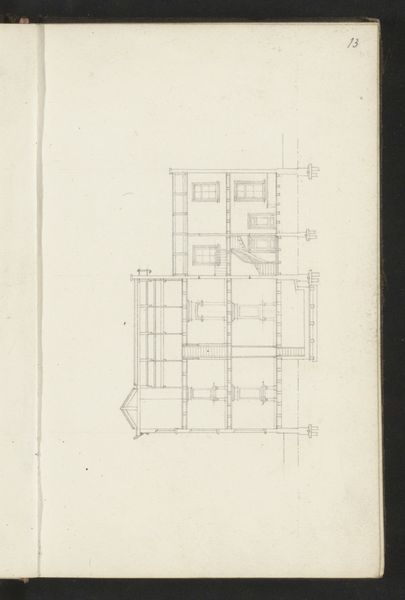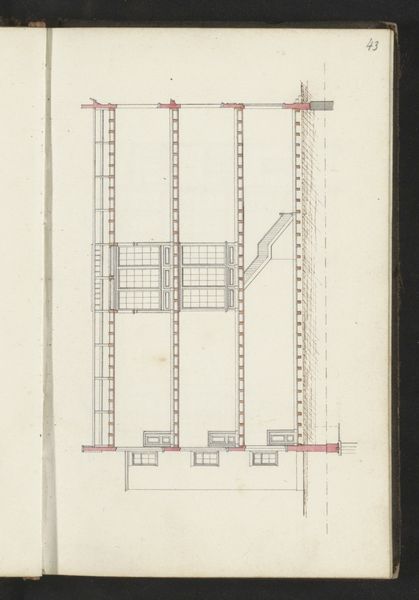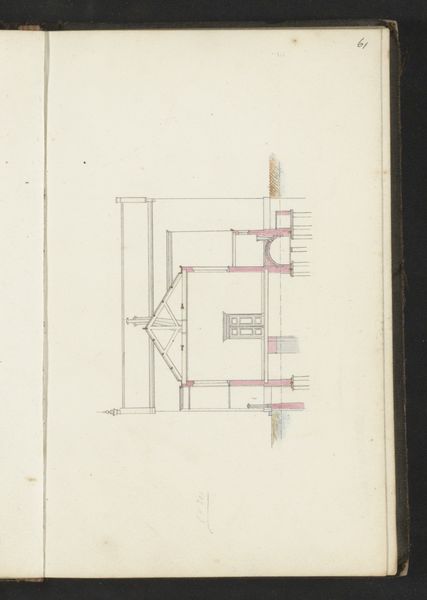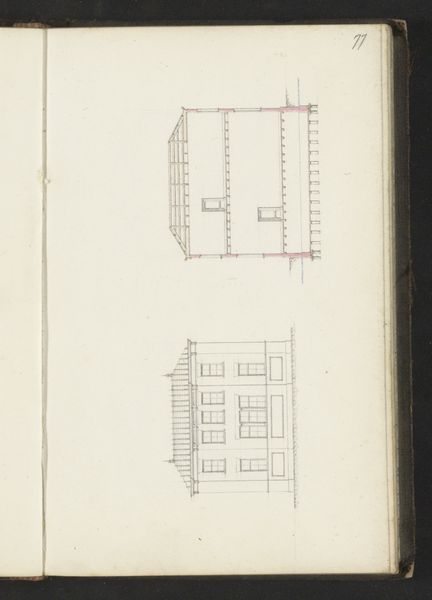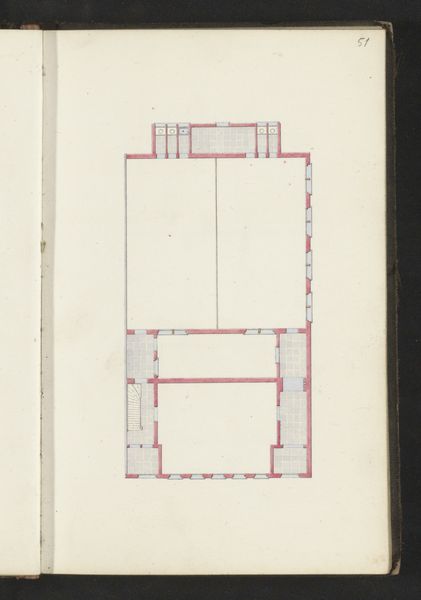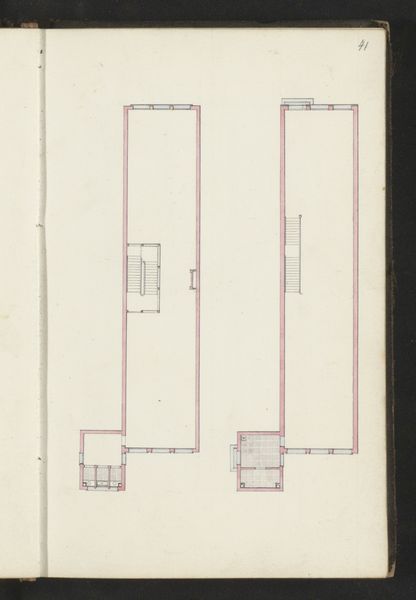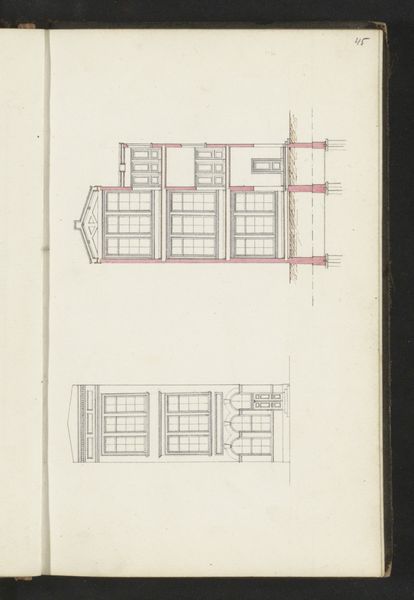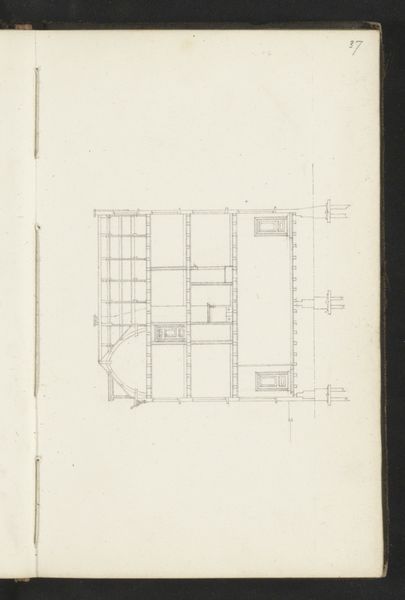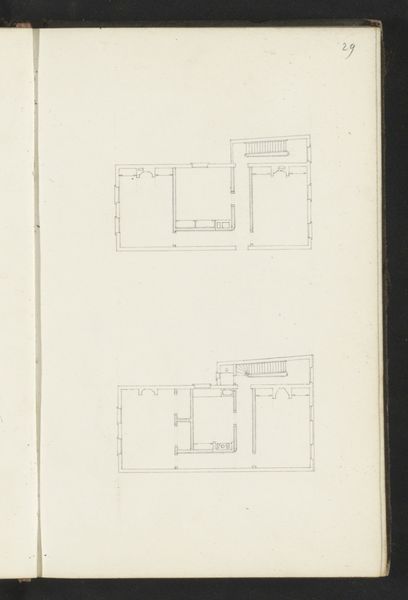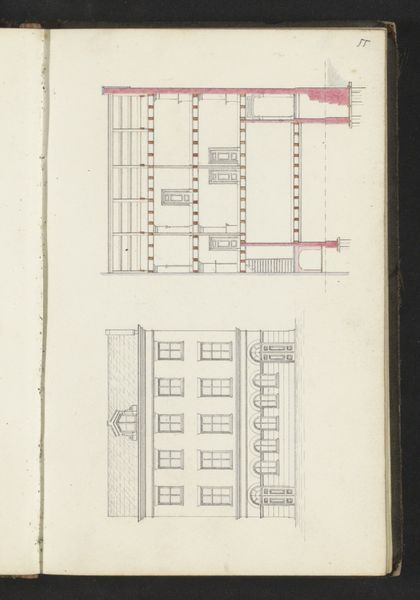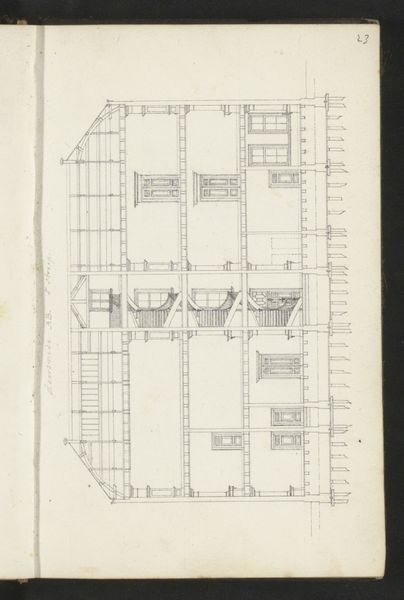
drawing, paper, pencil, architecture
#
drawing
#
aged paper
#
toned paper
#
hand written
#
homemade paper
#
sketch book
#
incomplete sketchy
#
hand drawn type
#
paper
#
personal sketchbook
#
hand-written
#
hand-drawn typeface
#
geometric
#
pencil
#
line
#
cityscape
#
academic-art
#
architecture
#
realism
Copyright: Rijks Museum: Open Domain
Curator: Willem Springer Jr.'s "Doorsneden van een gebouw," created around 1864, offers us an intimate look into architectural design through the lens of a pencil drawing on aged paper. The work is imbued with careful detail. Editor: You know, the moment I saw this, I thought of hushed libraries and creaking floorboards. It has this wonderful ghostliness to it. The precision is beautiful. Curator: Absolutely. Think about the mid-19th century—rapid industrialization, shifting social landscapes. Springer, through his precise lines and attention to detail, gives us access to understanding the architectural intentions. There’s also a subtle tension here, wouldn’t you agree? Between planning and execution, vision, and the socioeconomic forces at play in urban development. Editor: Oh, totally! I imagine Springer poring over these drawings by candlelight, each line a deliberate whisper. There’s something profoundly personal about sketches, a window into the mind of the creator, wouldn't you say? I mean you are quite literally getting a glimpse into someone's sketchbook here. It feels so exposed. Curator: Precisely. Consider, too, the materials themselves. The use of paper, pencil—traditional tools, even for the time. Does this speak to a certain conservatism in architectural education, or a deep respect for foundational skills? And how do we contextualize this cityscape sketch in relation to other architectural drawings and movements of the era? It almost feels incomplete in its execution... Editor: Yes! It's less a definitive statement, and more of an echo. A feeling that one can continue adding, erasing... evolving. And look at that hand-drawn typeface... there's real warmth here that transcends time! For me, there is a quietness that asks to be filled, an intention inviting a story or a memory. It's all so delicately done, you know? Like a half-remembered dream. Curator: Indeed, an artwork, then, not just about architectural cross-sections, but a cultural artifact reflecting complex negotiations around urban space and lived experience. Editor: I couldn't agree more. This drawing is not just about buildings. It's about possibilities, history, and memory coexisting in one gorgeous breath.
Comments
No comments
Be the first to comment and join the conversation on the ultimate creative platform.
